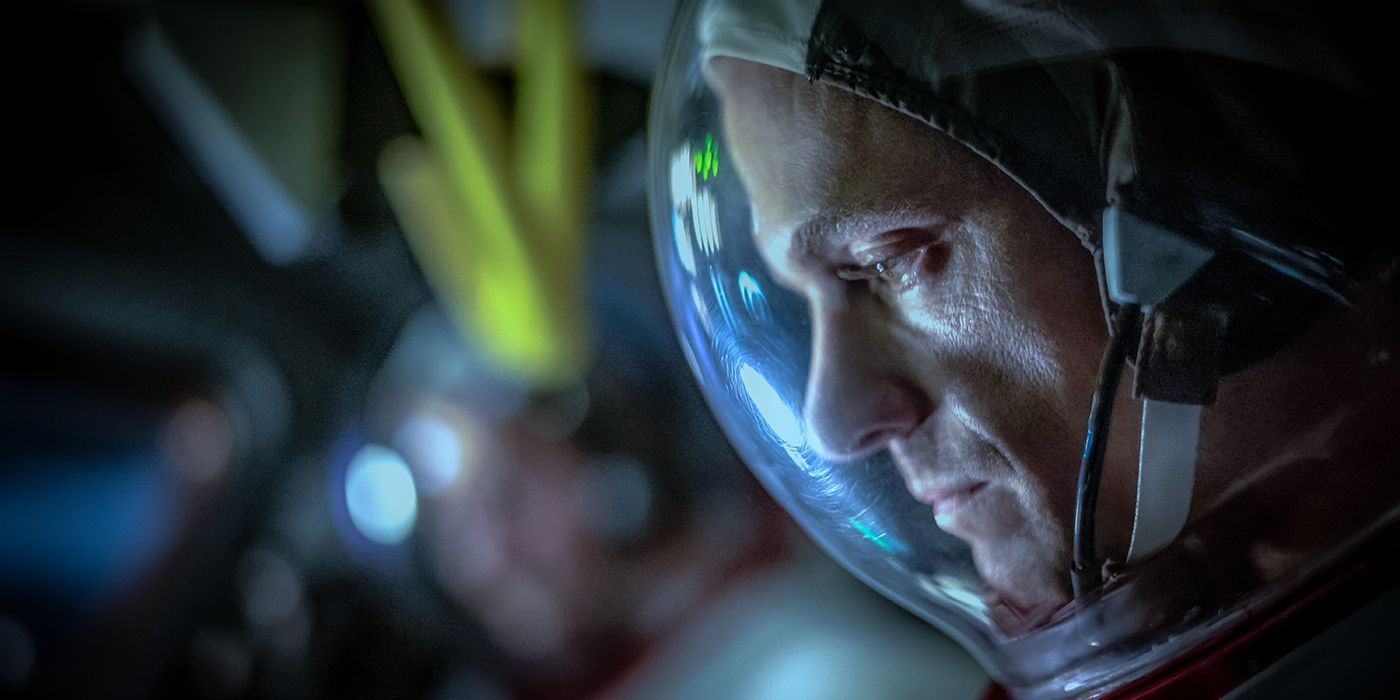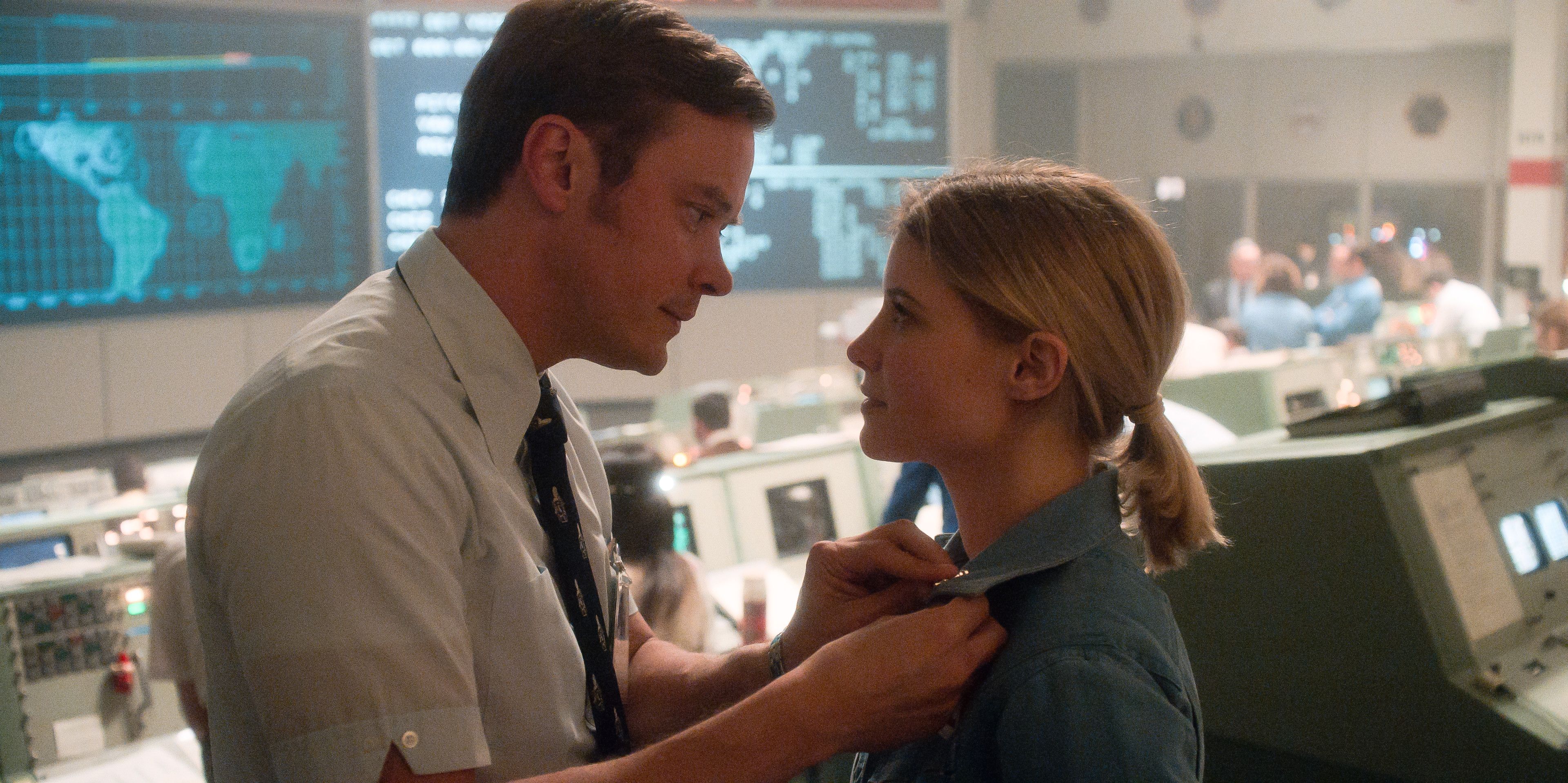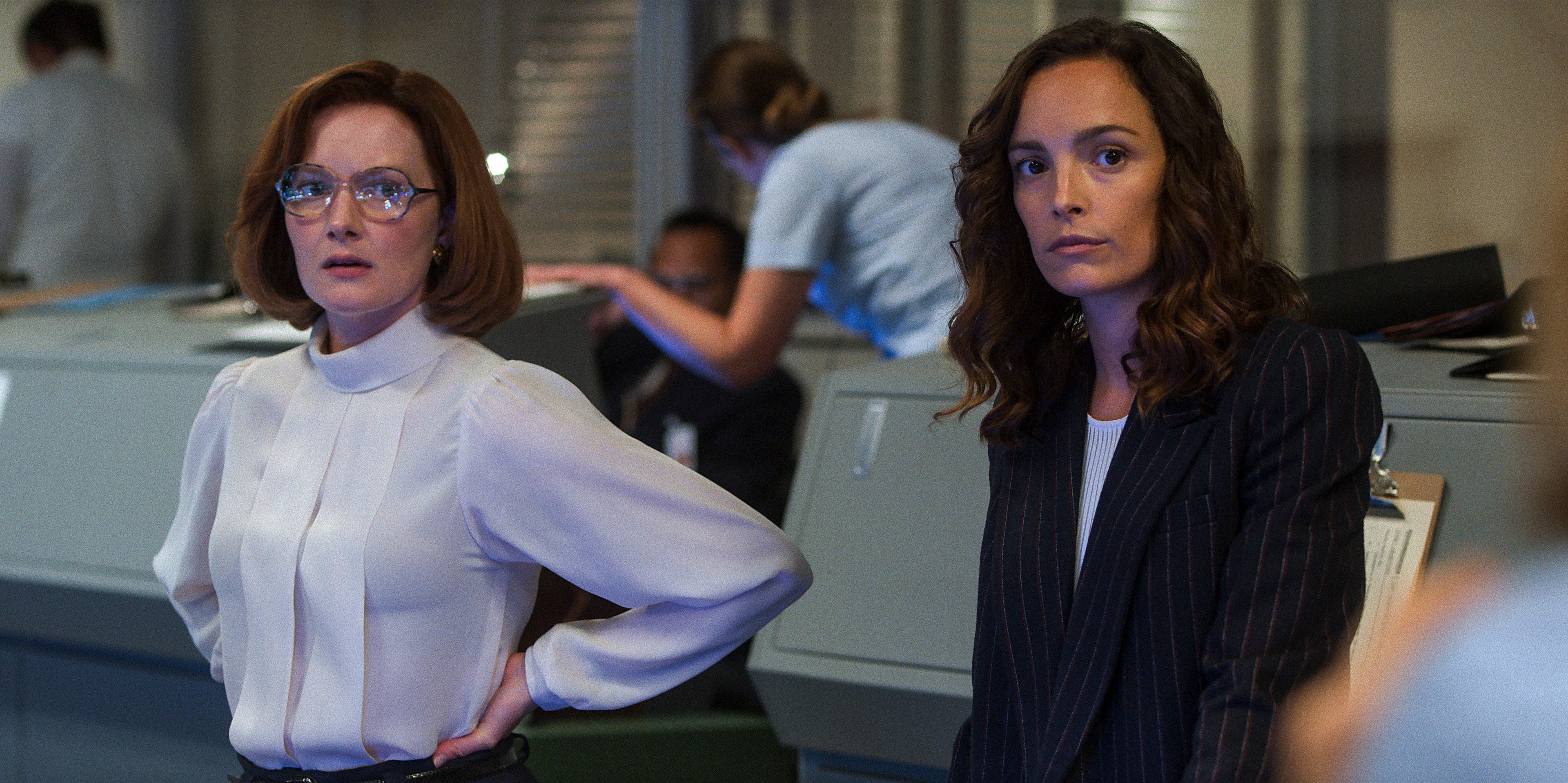[Editor's note: The following contains spoilers through the Season 2 finale of For All Mankind, "The Grey."]
The fun thing about For All Mankind is that each season finale makes it explicitly clear how much more story there is to be told. Season 2 ends with a great leap for the show into "the future," specifically the year 1994, where some things in this alternate universe haven't changed (like Nirvana's plaintive jam "Come As You Are") but some things have (like the fact that there's a man, or woman, walking around on Mars).
During Collider's one-on-one interview with co-creator Ronald D. Moore (watch the video above or read the transcript below), he declined to say whether Season 3 would build up to this moment over the course of several episodes or start there immediately. But the next chapter of this story, which is already in production now, is definitely going to be the Red Planet.
As exciting as that reveal is, it does come on the heels of a pretty sad turn of events: Specifically, the deaths of Gordon (Michael Dorman) and Tracy (Sarah Jones), who sacrificed themselves to save the Jamestown moon base in the climactic moments of the Season 2 finale. Below, Moore digs into the season finale's most heartbreaking choice, why he and the writers felt was no way around it, and where things stand with Season 3. He also states for the record the official backstory which explains why the Russian space force beat NASA to the moon in Season 1 — and why they may never get around to explaining it on screen.
Collider: There's so much to talk about when it comes to the finale, so if you don't mind, I'll just dive in and ask you about killing Tracy and Gordon.
RONALD D. MOORE: Yeah, that was a big deal. We spent a lot of time puzzling that through in the writer's room. We had set all the pieces in place and were trying to decide how they were going to play themselves out. And there were certainly various characters are in jeopardy, in various different ways. And as we started talking about the possibility of having one or both, either Gordo or Tracy, take that last run, then you start talking about whether they should die and would one of them die? Would both of them die? And we went round and round on it for a while internally.
Ultimately, I think what carried the day was just our sense that this was the right ending to their story as characters, that it felt like we had taken them on a journey from season one and shown you how they first met. Then the troubles in their marriage. Then Tracy gets this opportunity, how that affects Gordo's life. Then they split between the seasons and the two of them coming back together on the Moon and finding each other finally at the very end and then dying together in this heroic endeavor, seemed like the right way to end their story. And even though we were sort of all heartbroken about it because we loved the characters and we loved the cast members, we love Sarah and Michael, and it was hard. But at the end, we just felt like it was the right thing to do. And it felt like that's the satisfying ending to the story of Tracy and Gordo.
Was this a situation where you knew that the actors wouldn't be available for Season 3 and writing towards that?
MOORE: No, no. It was the opposite. I mean, they were available. We could have continued both characters and we had preliminary plans, because we had sort of sketched ahead multiple seasons on the show and ideas about what we were going to do with them in the third season. But the story just took us there. It really wasn't about actor availability at all.
It must be nice to have that kind of freedom within the writer's room.
MOORE: It is. It's great. You know, I mean, it's a very open, very free room. And I always try to tell my writing staffs, come up with the idea that's crazy. Come up with something that's shocking. Say the thing that you don't think you can say, and most of the time you're not going to do it. A lot of the times you're just going to say, "Ah, that's really that's too much," but sometimes it is the right move. And sometimes when somebody says it, everybody takes a back and goes, "Oh, I don't know if we can do that." And then you start talking it through and you start seeing the opportunities and the possibilities, and then you shy away from it. And then you just keep finding yourself, like a gravitational force, coming back to it.
It was pitched out early that Gordon and Tracy could die when they go on that run and we all went, "Ah, no. Let's not do that." But it just kept coming back up. The idea wouldn't die at the writer's room, and we just kept coming back to it until it was clear that it was just the right place to go.
In terms of leaping forward to 1994 for Season 3, we saw in the leap from Season 1 to Season 2 that we did get some of the details about what happened in the years that were skipped over, but not a lot, and they just trickle in. Is that similar to the approach you're taking for Season 3?
MOORE: Yeah. It'll be a very similar approach. We want to let the audience be surprised by the changes of what's happened and where the characters are in their lives, what's happened in the world and then give them a certain framework of, okay, here's some historical events and some cultural events that happened in between the two seasons. But then as the season goes on, you keep making references to things that happened in the intervening years. And there's things that are in television. There's things in newspapers. There's casual lines that are thrown out, little Easter eggs along the way.
Apple has also had this as part of the platform — we had certain bonus pieces that we put in there that also filled in [the previous years]. There were news broadcasts. There were sort of confessionals, there were other historical pieces that we put on the platform for people that were really, really interested in those alternate history ideas. Because we had worked out a lot of that stuff, so here it is. If you're interested, here's another way to go experience that.
During the first set visit Apple held for the show, you were asked what the divergence point was for this alternate reality — what was the one thing that happened that led to the Russians speeding past the Americans to the Moon. You said what it was then, but I don't think we've had it been officially revealed on the show. So I was curious, has it changed in the show's mythology? And is that something you ever do plan to officially reveal?
MOORE: Oh, I know what you're talking about. And actually, yeah, it's not a huge player. I'll just give it to you. Our point of divergence was the idea that Sergei Korolev, who was the father of the Soviet space program, in reality, he died during an operation in Moscow in the mid '60s. And after that point, their moon program really never pulled together. They had developed the N1 rocket, but it kept blowing up. And it all kind of fell apart in the race to the moon.
Our point of divergence was that Korolev lives, and that somehow, he was able to pull all the bureaucratic pieces together and the technological challenges, and he made their moon landing happen. That was the point of divergence for us. We had always tried to figure out a way to mention it, but there was never an organic, easy way to casually say that somebody did not die in an operation, so we never quite figured out a way to really cement that into the story.
I think we might've mentioned the name Korolev in dialogue somewhere, or maybe that got dropped out, but it's one of those things I think we've sort of forgotten, because it's so far now in the past of our creative process that we haven't ever actually pinpointed it on camera that that's the point of diversion.
In terms of Season 3, what do you feel comfortable teasing at this point?
MOORE: Well, not much. Just that it does jump to the '90s, and Mars is clearly a big focus of what Season 3 is about. The rest of it, we're just keeping it under wraps for now.
To wrap up, I want to ask about getting Nirvana for the final moments — was that as hard as you might've expected, or did it come together pretty easily?
MOORE: It was just a question of money. I'll put it that way, but none of the big songs are cheap. We've used everyone from Sinatra to Nirvana to the Rolling Stones and AC/DC at this point. So we know what we're in for and we budget accordingly.
For All Mankind Season 2 is streaming now on Apple TV+.



